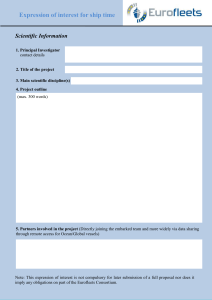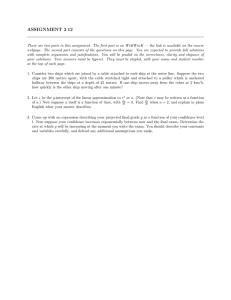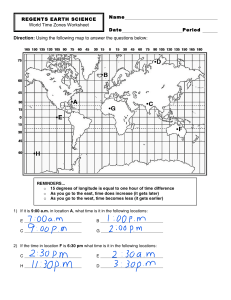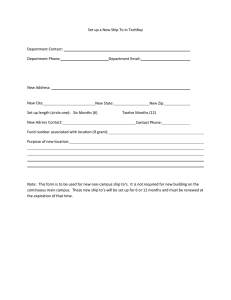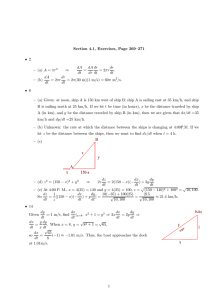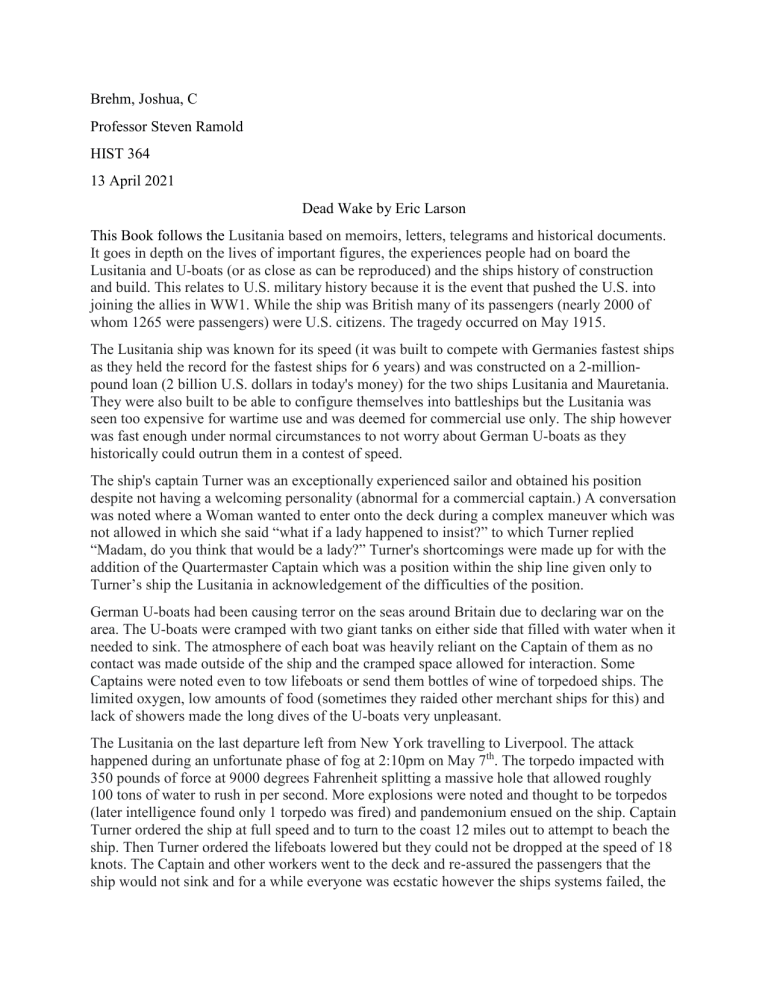
Brehm, Joshua, C Professor Steven Ramold HIST 364 13 April 2021 Dead Wake by Eric Larson This Book follows the Lusitania based on memoirs, letters, telegrams and historical documents. It goes in depth on the lives of important figures, the experiences people had on board the Lusitania and U-boats (or as close as can be reproduced) and the ships history of construction and build. This relates to U.S. military history because it is the event that pushed the U.S. into joining the allies in WW1. While the ship was British many of its passengers (nearly 2000 of whom 1265 were passengers) were U.S. citizens. The tragedy occurred on May 1915. The Lusitania ship was known for its speed (it was built to compete with Germanies fastest ships as they held the record for the fastest ships for 6 years) and was constructed on a 2-millionpound loan (2 billion U.S. dollars in today's money) for the two ships Lusitania and Mauretania. They were also built to be able to configure themselves into battleships but the Lusitania was seen too expensive for wartime use and was deemed for commercial use only. The ship however was fast enough under normal circumstances to not worry about German U-boats as they historically could outrun them in a contest of speed. The ship's captain Turner was an exceptionally experienced sailor and obtained his position despite not having a welcoming personality (abnormal for a commercial captain.) A conversation was noted where a Woman wanted to enter onto the deck during a complex maneuver which was not allowed in which she said “what if a lady happened to insist?” to which Turner replied “Madam, do you think that would be a lady?” Turner's shortcomings were made up for with the addition of the Quartermaster Captain which was a position within the ship line given only to Turner’s ship the Lusitania in acknowledgement of the difficulties of the position. German U-boats had been causing terror on the seas around Britain due to declaring war on the area. The U-boats were cramped with two giant tanks on either side that filled with water when it needed to sink. The atmosphere of each boat was heavily reliant on the Captain of them as no contact was made outside of the ship and the cramped space allowed for interaction. Some Captains were noted even to tow lifeboats or send them bottles of wine of torpedoed ships. The limited oxygen, low amounts of food (sometimes they raided other merchant ships for this) and lack of showers made the long dives of the U-boats very unpleasant. The Lusitania on the last departure left from New York travelling to Liverpool. The attack happened during an unfortunate phase of fog at 2:10pm on May 7th. The torpedo impacted with 350 pounds of force at 9000 degrees Fahrenheit splitting a massive hole that allowed roughly 100 tons of water to rush in per second. More explosions were noted and thought to be torpedos (later intelligence found only 1 torpedo was fired) and pandemonium ensued on the ship. Captain Turner ordered the ship at full speed and to turn to the coast 12 miles out to attempt to beach the ship. Then Turner ordered the lifeboats lowered but they could not be dropped at the speed of 18 knots. The Captain and other workers went to the deck and re-assured the passengers that the ship would not sink and for a while everyone was ecstatic however the ships systems failed, the rudder died and the electricity went out (including the elevators and lights. Unknown to many of the crew a total estimate of 70 portholes were left gouged and around 260 tons of water was entering each minute. The super-heated boiler rooms exploded and many passengers released the lifeboats against the Captains orders to not release them. Turner stayed on the ship till the end, once the ship was down however his survival instinct emerged and he swam for shore. Seagulls attacked the dead and alive alike and he recalls fending off seagulls from pecking his eyes. A few ships tended to the rescue including the Flying Fish and Bluebell. The book goes into far more detail about the cat and mouse of the U-boat and the Lusitania. It also talks about influential figures and eye witness accounts from passengers. Germans sinking of the British ship of superiority was so tragic that it was the last straw for the U.S. to get involved in the war. Because of the re-assurance that nothing was wrong many passengers didn’t bring their life-jacket for the end or was unable to retrieve it in the darkness of losing power and many of these people died. 764 people survived while 1995 died in this tragedy.
